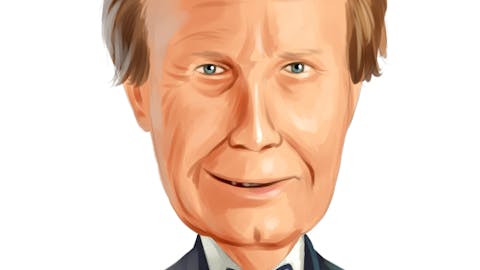Operator: We’ll take our next question from Jeffrey Stantial.
Jeffrey Stantial: Anyway starting off here, I just wanted to drill on the margins a bit more specifically focusing on the US segment. Peter or Erwin, can you disclose for us what same store margins were year on year for the US region in aggregate? And then unpacking that decline? I was hoping you could just frame out in your mind whether qualitatively or putting some numbers behind it, how much is some of the structural inflationary pressures you called out labor and utilities versus how much is more that one-time headwinds with the new assets and the construction?
Erwin Haitzmann: So in the United States, in Q3 of 2022, we had a EBITDA margin of 30%, and in Q3 of ’23, our margin was 26.1%. And the margins differ from casino to casino. With regard to separation the cost side, which really hit the integration costs for the two new properties, now within the Rocky Gap, we still have some construction disruption, which also leads to some either lower revenues and costs. And if you know, Cape Girardeau hotel, we will be opening in Q2 of next year and Colorado Springs in Q4 of next year. And that will be [indiscernible] and all of that will be digested and then hopefully the synergies start to kick in step-by-step on. And with regard to labor costs, utilities, insurance, so the most structured ones. As Peter said earlier, we don’t think that there will be any further increase in those.
Jeffrey Stantial: Okay, great. That’s helpful. Thank you, Erwin. And then corelated to that, Peter, I wanted to follow up on one of your comments towards the end of the prepared remarks. I think you noted that you think OpEx or margins will be roughly stable from Q3 moving forward. Inflationary pressures are moderating, though, still impactful. So I guess is the net-net of that of your inflationary pressures continue to develop pressure margins, but conversely, some of the one-time headwinds are going to roll off those dynamics roughly offset each other. Am I thinking about things the right way or can you just expand on that a bit further?
Erwin Haitzmann: I would say, I think you’re on the right track thinking that. We think the same way.
Jeffrey Stantial: Okay. Perfect. That’s helpful. Thank you. And then if I could just squeeze in one more. I want to follow up on one of Chad’s questions earlier. We did here one of your peers that operates in Reno talk to some elevated promotional activity from a couple of competitors in that market, some higher free play, more aggressive room comps, things of that nature. Are you seeing similar to that factor in your results during the quarter? Just any thoughts on that dynamic?
Erwin Haitzmann: Yeah, we see some of that in particular from one or two of the so-called smaller operators that don’t have a hotel attached. Some of them go quite proactive if not to say they’re shifting to the market. And we would just have to observing that. We are not going that aggressive.
Jeffrey Stantial: Okay. Understood. That’s helpful. Thank you very much. I’ll pass it on.
Operator: It appears we have no further questions. I will now turn the call back over to your presenters for any additional or closing remarks.
Peter Hoetzinger: All right. Thanks, everybody. We appreciate you joining our call today. We will talk again after the first quarter, but I’m sure we’ll see each other at some conferences between now and day. Thank you. Goodbye.
Operator: Ladies and gentlemen, this concludes today’s conference call. You may now disconnect.
Follow Century Casinos Inc (NASDAQ:CNTY)
Follow Century Casinos Inc (NASDAQ:CNTY)
Receive real-time insider trading and news alerts




